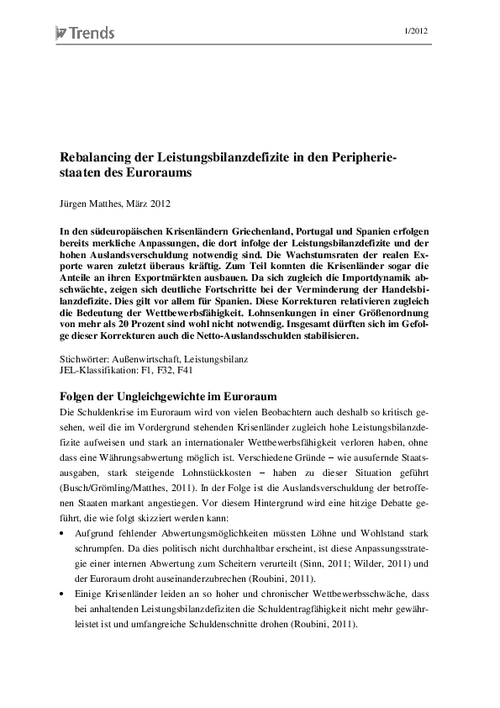In Greece, Portugal and Spain, the southern European countries worst hit by the sovereign debt crisis, noticeable adjustments necessitated by their current account deficits and high foreign debt are already being made. Recently, growth rates for their real exports have been impressively vigorous. Some crisis-stricken countries have even been able to expand their export market shares. Since imports have simultaneously weakened, considerable progress has been seen in the reduction of their trade deficits. This applies particularly to Spain. These corrections question the alleged importance of significant competitiveness improvements to achieve a rebalancing of their current accounts. Thus, demands for wage cuts in the order of 20 per cent or more appear exaggerated. In the wake of these corrections overall net foreign debt should also stabilise.
Download | PDF


